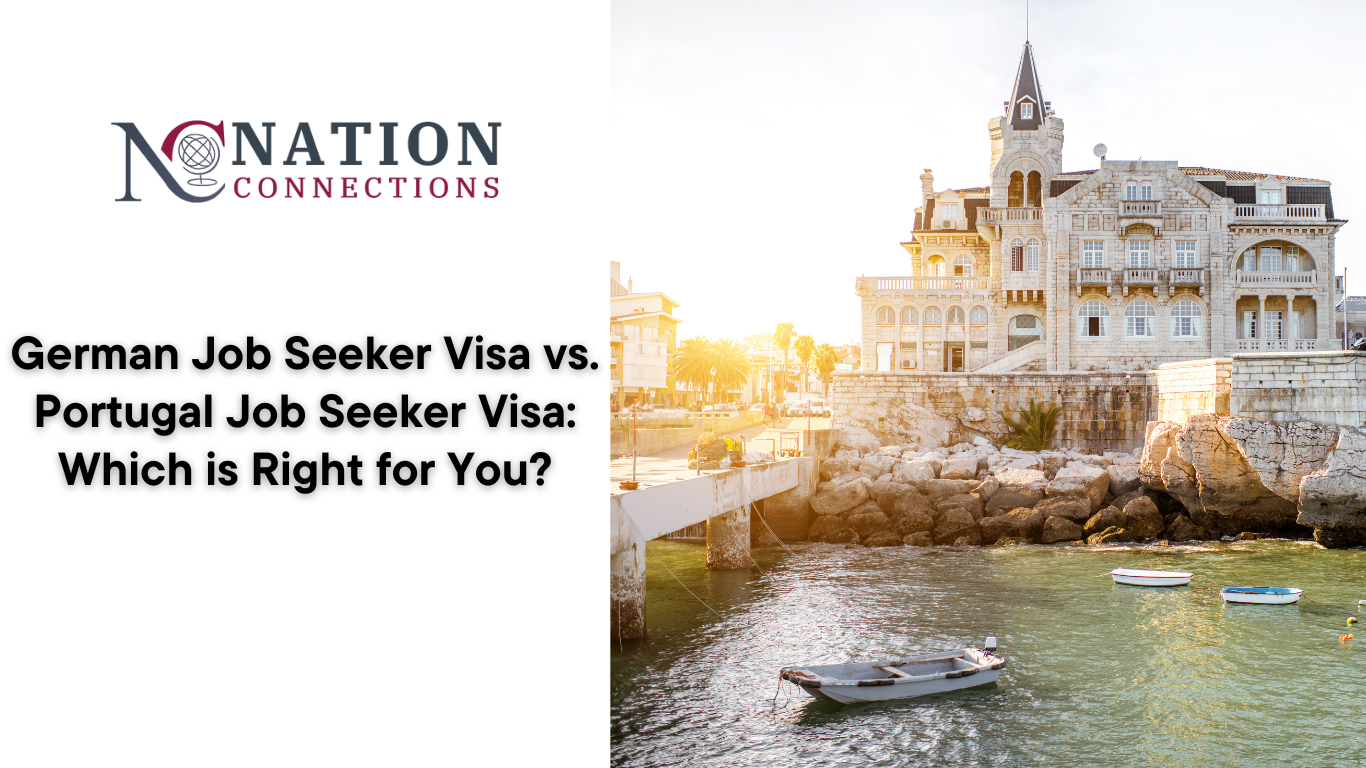Finding job opportunities abroad is a goal for many professionals, and European countries offer several visa pathways to facilitate this. Two of the most popular options are the German Job Seeker Visa and the Portugal Job Seeker Visa. While both visas allow non-EU citizens to enter these countries to search for employment, they have distinct features and requirements. In this guide, we’ll compare both visas based on eligibility, duration, benefits, and challenges to help you determine which one is the better choice for you.
1. Overview of Both Job Seeker Visas
German Job Seeker Visa
- A long-term visa that allows skilled professionals to stay in Germany for up to 6 months to look for a job.
- If a job is secured, you can apply for a work visa or residence permit.
- Requires relevant work experience and recognized qualifications.
Portugal Job Seeker Visa
- A relatively new visa allowing individuals to stay in Portugal for 120 days (4 months), extendable to 60 more days (total 6 months).
- If employment is secured, you can transition to a residence permit for work.
- No requirement for prior job offer or contract before arrival.
2. Key Differences Between the Two Visas
| Criteria | Germany Job Seeker Visa | Portugal Job Seeker Visa |
|---|
| Duration | 6 months | 4 months (extendable to 6 months) |
| Eligibility | Minimum of a bachelor’s degree (recognized in Germany) and 5 years of work experience | No strict requirement on degree recognition or years of experience |
| Language Requirement | Knowledge of German (optional but beneficial) | Portuguese knowledge (optional but beneficial) |
| Financial Requirement | Proof of sufficient funds (~€7,200) | Proof of financial means (~€2,280 for 4 months) |
| Application Processing Time | 4-6 weeks | 2-3 months |
| Work Opportunity | Strong job market, especially in IT, engineering, and healthcare | Growing job market, especially in tourism, hospitality, and tech |
| Path to Permanent Residency | PR possible after 33 months of work (21 months with B1 German proficiency) | PR possible after 5 years of residence |
3. Pros & Cons of Each Visa
German Job Seeker Visa
✅ Pros:
- Access to one of Europe’s strongest economies with high salaries.
- Wide job opportunities, especially in STEM fields.
- Easier pathway to Permanent Residency and EU Blue Card.
❌ Cons:
- Strict eligibility criteria (degree recognition and work experience required).
- High cost of living in cities like Berlin and Munich.
- German language is an advantage but can be a barrier for some job seekers.
Portugal Job Seeker Visa
✅ Pros:
- Easier eligibility with no strict requirements on degree recognition or experience.
- Lower cost of living compared to Germany.
- Warmer climate and better work-life balance.
❌ Cons:
- Shorter visa duration (4-6 months compared to Germany’s 6 months).
- Fewer job opportunities in certain high-demand industries.
- Lower average salaries compared to Germany.
4. Which One Should You Choose?
- Choose Germany if you are a highly skilled professional in engineering, IT, healthcare, or finance and can meet the strict eligibility requirements.
- Choose Portugal if you prefer easier entry requirements, a lower cost of living, and job opportunities in tourism, customer service, or tech startups.
5. Final Verdict
Both visas provide excellent opportunities to enter the European job market. If you meet the qualifications and are looking for high salaries and career growth, Germany is the better choice. However, if you prefer a simpler process, better weather, and a relaxed lifestyle, Portugal is a great alternative.




